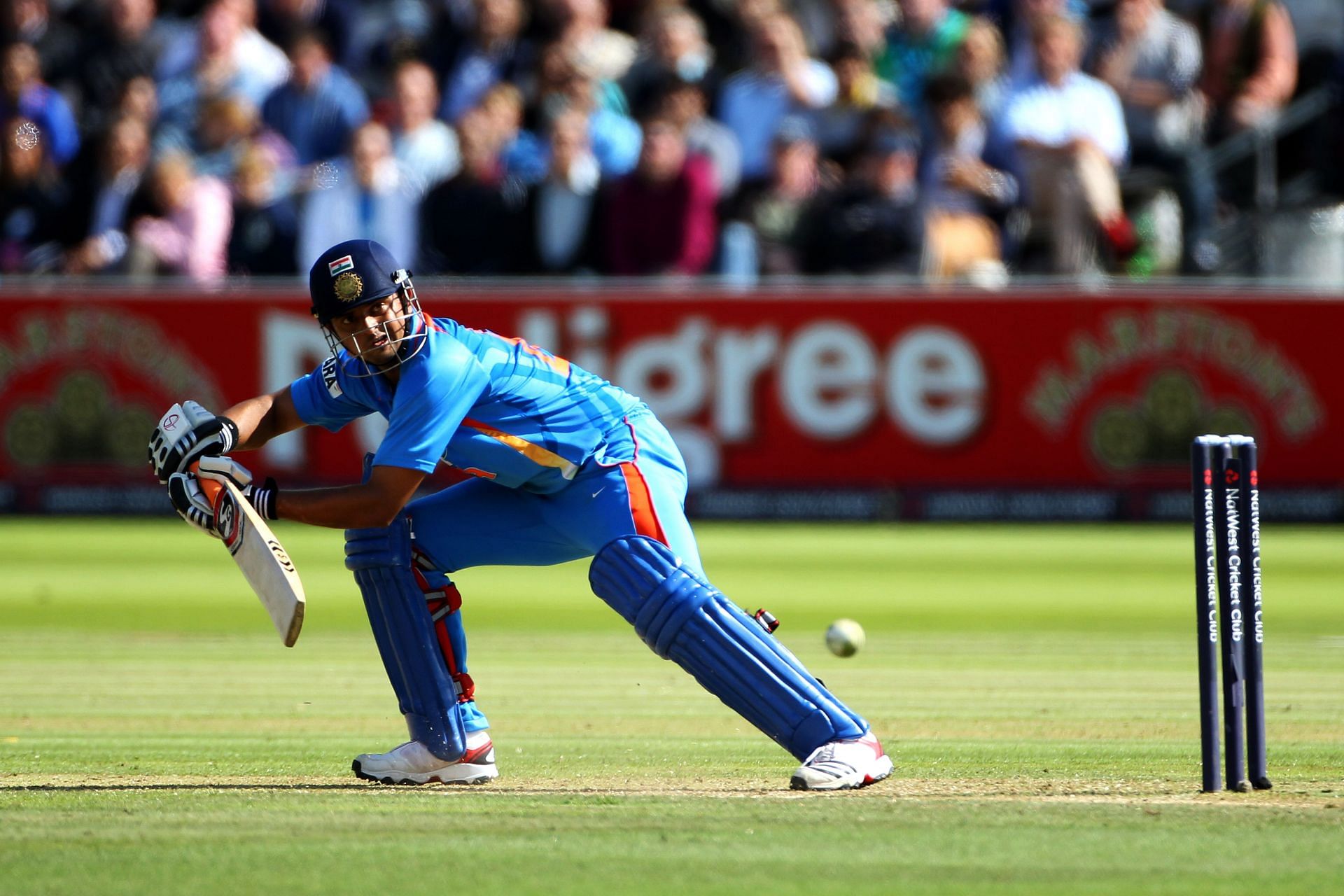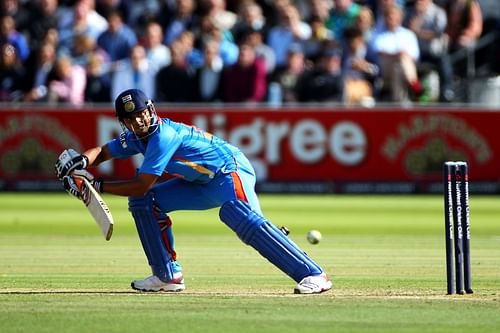
Independence Day and a retirement emblematic of Suresh Raina's persona

As an Indian, what would an ideal Independence Day celebration look like? Possibly watching the national flag being hoisted atop a historical monument. Maybe a movie on how India attained independence or how they fought back against all odds when under the British rule. It could even be you reminiscing the great sporting moments the country has seen all these years.
In 2020, though, things were slightly different. The COVID-19 pandemic had wreaked havoc everywhere, spilling over into the cricketing calendar too. The IPL, which usually happens during the summer, was pushed more towards September and cricketers who hadn’t represented India in a while, had begun contemplating international retirement.
MS Dhoni, arguably one of the finest cricketers India has produced, announced his retirement from international cricket on Independence Day in 2020. It wasn’t a decision that was totally out of the blue. The wicket-keeper had last played for India at the 2019 ICC Cricket World Cup, and had made himself unavailable ever since. Yet, the way it was done, with a nostalgia-inducing four-minute video, and a certain lack of fanfare, caught a lot of people off-guard.
While almost everyone was shedding tears and was coming to grips with the fact that Dhoni had hung up his international boots, Suresh Raina’s international retirement snuck under the radar – much like most of his international career. Two years on, though, the time is perhaps right to look back glowingly at Raina’s India career.
There’s a school of thought existing in our world that the value of something/someone can’t truly be gauged until you experience life without it. It could be that one person who was always there for you, rarely trying to assert his/her importance. Or, that person who did everything you asked of him/her without any sort of questioning in return.
At the time, you can’t even imagine your life without it revolving around that person but because you become so used to it, you never really think what will happen if that arrangement ceases to exist. So, whenever it falls apart, you don’t realise it, until, well, it’s either too late or it only becomes something to get tearily nostalgic about.
You could say Raina had a similar relationship with India. The sheer numbers he produced don’t make you jump out of your seats. Nor, do they upstage more illustrious names such as Dhoni, Virat Kohli and Yuvraj Singh. What those stats don’t tell, though, is how the former Chennai Super Kings batter was, without fail and without any questions, willing to do anything and everything his country asked of him.
You needed a quick over to relieve one of the frontline bowlers? Raina raised his hand. Required someone to close out a tricky run-chase? The left-handed batter relished those situations. Want someone to put on a cape and produce a moment of magic in the field? Raina was always on hand to do so.
A part of why his international career isn’t talked about much is because of what he accomplished in the IPL, where he, in a lot of people’s eyes, remains the best batter to have ever graced the competition. For all the right reasons too.
In the first few seasons of the IPL, teams were yet to buy into an ultra-aggressive T20 philosophy. CSK, too, liked to sit back, build a foundation and then unleash at the death courtesy Dhoni. During those years, however, Raina batted at a tempo that only a handful of batters could dream about. The IPL success aside, it made him India’s first-ever men’s centurion in a T20I – a ton that came at the T20 World Cup in the West Indies in 2010.
Suresh Raina had a succesful international career
Much of Raina’s career dovetailed with an Indian T20I era where accelerating progressively was the norm. By that yardstick, a strike rate of nearly 135 is pretty impressive. That he also averaged a shade under 30 indicates how special a cricketer he was in the shortest format.
He wasn’t shabby in ODI cricket either. He ended up scoring more than 5000 runs, which for a batter who batted as low as he did, is a pretty stellar achievement. The former CSK cricketer also stood up when the big occasion came calling.
Almost everyone remembers Yuvraj taking the game to Australia in the quarter-final of the 2011 ICC Cricket World Cup. Raina, though, was just as pivotal, ensuring his senior partner didn’t run out of support. A game later, Sachin Tendulkar hogged the headlines against Pakistan. How many remember what Raina did that game? Not many. But the left-handed batter did contribute an unbeaten 36-run knock – one that took India to a total of 260. India won that game by 29 runs.
Raina was also a three-dimensional cricketer before the term became fashionable. Arguably the greatest fielder India has ever produced, his batting was unparalleled and his bowling perhaps underrated. But just look at how India had been struggling to find a sixth-bowling option in the past couple of years, and you kind of understand how crucial players of his ilk are to the proper functioning of any top-class side.
Maybe then, people are now realising what Raina meant to the Indian set-up and why it might be very difficult to find someone like him. India will find batters who score more runs, fielders who take more spectacular catches and bowlers who provide them with crucial breakthroughs. They might even find someone to be as charismatic as Raina was in the field. Can all of that, though, be packaged into one individual? Perhaps not.
And that’s what makes remembering his career even more worthwhile. After everything he has done for Indian cricket, he should’ve gone out with a bang, given the sort of farewell someone of his calibre deserves. But Raina being himself, was content to just walk into the sunset without a fuss in the world.
August 15, 2020 will forever be etched in Indian sporting folklore as the day Dhoni retired from international cricket. And his trusted lieutenant was willing to do whatever his captain had done. No drama. No seeking coverage. No thinking of what he will get in return. Just undying and unwavering support for whoever needed it.
If that doesn’t explain Raina in a microcosm or isn’t emblematic of what he stood for throughout his career, nothing ever will.